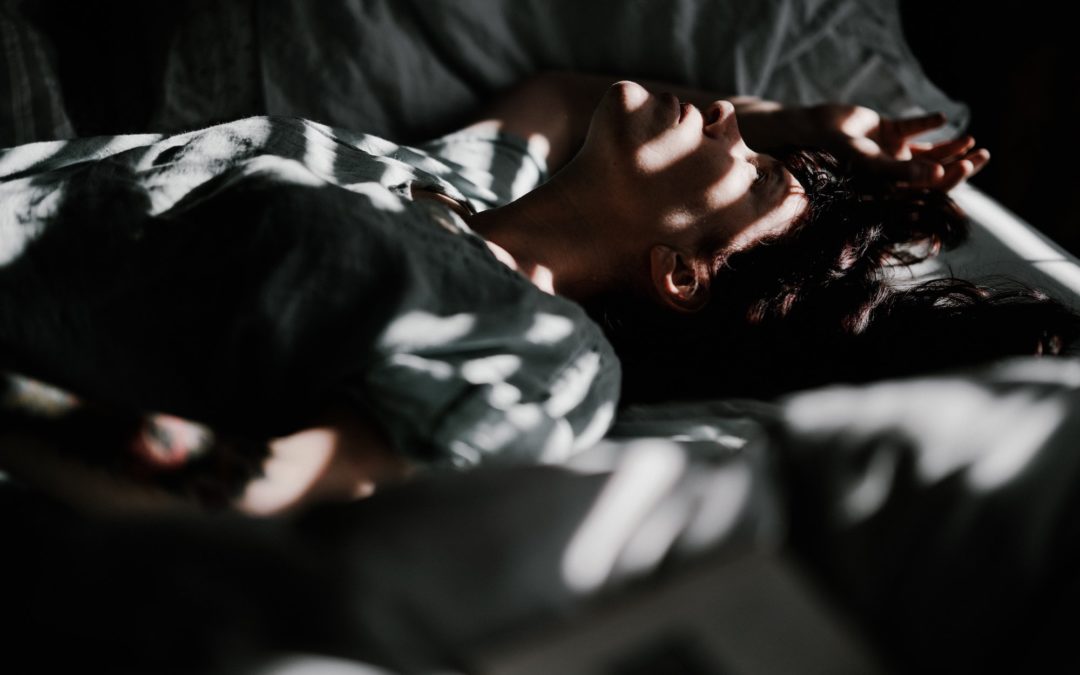“Nothing cures insomnia like the realization that it is time to get up.” – anonymous
Insomnia is the catch-all term we use to describe difficulties in sleep– whether it is difficulties in falling asleep, staying asleep or not feeling restored and rested after sleep. It is the most common sleep disorder and will affect approximately one-third of all adults at some point in their lives.
Sufferers not only have the nocturnal symptoms, they also feel impairment in their ability to function during the day with inability to concentrate, anxiety, depression, forgetfulness and fatigue.
Insomnia may be transient (lasting less than a week), short-term (one to three weeks) or chronic (over three weeks).
Transient and short-term insomnia may be the result of an altered or poor sleep environment, such as excessive noise or light or an uncomfortable room temperature. Lifestyle changes, such as jet lag, change in work shifts, illness or stressful life events. Medications with stimulants, such as bronchodilators, theophyllines, methlphenidate or caffeine containing pain relievers.
When insomnia lasts more than a few weeks, it may be associated with chronic drug, alcohol or caffeine usage, medical and psychiatric disorders. Chronic conditions such as sleep apnea and restless leg syndrome also can be the source of long-term insomnia.
Risk Factors
Insomnia is more common in women than in men, and in divorced, widowed or separated people. Other factors that increase your risk of insomnia include:
- Age. As you age, your body secretes smaller amount of growth hormone – which promotes deep sleep, and melatonin – which regulates your sleep cycle. As a result, you sleep lighter and have a harder time staying asleep.
- Psychiatric illnesses: Sleep disturbances are more common with depression, anxiety disorders, acute stress and schizophrenia.
- Nicotine Withdrawal: is associated with fragmented sleep. Insomnia can also be a side effect of nicotine patches.
- Alcohol and Drugs: Abuse of these substances result in impaired sleep.
Get a good diagnosis: A complete history and physical examination, including a detailed sleep and psychiatric history which looks at sleep habits, sleep environment, drug and alcohol use, family medical history and medication usage. Talking with the patient’s bed partner and having the the patient keep a sleep log can be helpful for a doctor to make a good diagnosis.
Lab tests may be needed to look for medical disorders, such as thyroid endocrinopathies, that can disturb sleep. Some patients may need specialised testing such as a polysomnography that can identify sleep apnea, a sleep-related breathing disorder.
Treatment
Addressing the underlying cause – whether medical, surgical or psychiatric is the first step.
Regular exercise has been shown to improve sleep duration and overall quality. Exercise timing is important. Morning exercise is not associated with improved sleep, while exercise shortly before bedtime can delay sleep onset.
Sleep only as much as you need to feel rested.
Keep a regular sleep schedule.
Avoid smoking, especially near bedtime.
Although controlled studies have not been done, a review of available evidence suggests that a warm bath in the evening can increase deep sleep (slow-wave sleep) in healthy elderly women.
Several medications are used for insomnia – zolpidem, zaleplon, eszopiclone, lorazepam, diazepam, diphenhydramine, trazodone. Although, using these medications will help induce sleep, these drugs do not improve the quality of sleep and many patients still feel tired the next day.
Nutritional Factors:
- Avoiding alcohol. Small amounts of alcohol may not have a negative effect on sleep for most people. However, excess or chronic alcohol causes insomnia by decreasing REM sleep. Three to six standard alcohol beverages inhibits melatonin secretion by more than 40% disrupting your normal sleep cycle. Alcohol can cause a rebound excitation by increasing the sensitivity and number of receptors of glutamate, a stimulant neurotransmitter. As alcohol metabolises in the liver, it produces aldehydes, another stimulant.
- Limit caffeine. The stimulatory effect of caffeine is highly individual. Some people can drink several cups of coffee per day with no effect on their sleep, while others are much more sensitive. Slower blood clearance leads to higher caffeine concentrations indicating that differences in caffeine metabolism is a cause of sleep disturbances. If you suspect caffeine may be a component in your sleepless nights, examine your diet to look for less obvious sources of caffeine such as chocolate and medications.
- Carbohydrates. Tryptophan and 5-hydroxytrytophan, as precursors of melatonin through the seratonin pathway, may help treat insomnia. However, as they have been associated with a contaminated compound that caused eosinophilia-myalgia syndrome, they can not be recommended. As the passage of tryptophan across the blood-brain barrier depends on how much it must compete with other amino acids, carbohydrate rich foods may be helpful. By stimulating the release of insulin, carbohydrate rich foods reduce blood concentrations of competing amino acids and thus foster tryptophan’s passage across the blood-brain barrier.
Two widely used substances are still under investigation for their role in treating insomnia:
- Melatonin. Jeg lag sufferers, melatonin deficiencies in elderly and shift workers have been partly helped by melatonin supplements. Melatonin use in the elderly, in particular, has helped decrease their dependence on benzodiazepines for sleep. Studies suggest that melatonin is safe in treating delayed sleep phase but evidence does not support using it for the majority of other sleep disorders.
- Valerian root. Doses of 400 to 500 mg/day improve sleep quality in many individuals. However, not all studies have found valerian to be effective. Also, side effects may include headache, restlessness and paradoxical stimulation.
Insomnia adversely affects the quality of life and should be discussed with your doctor to rule out medical and psychiatric etiologies.
This article was written by Dra. P. A. Anthony, Clinica Santa Cecilia Medical Director and General Practitioner. Call us today at +34 95 252 1024 to set up your appointment with Dra. Anthony.
